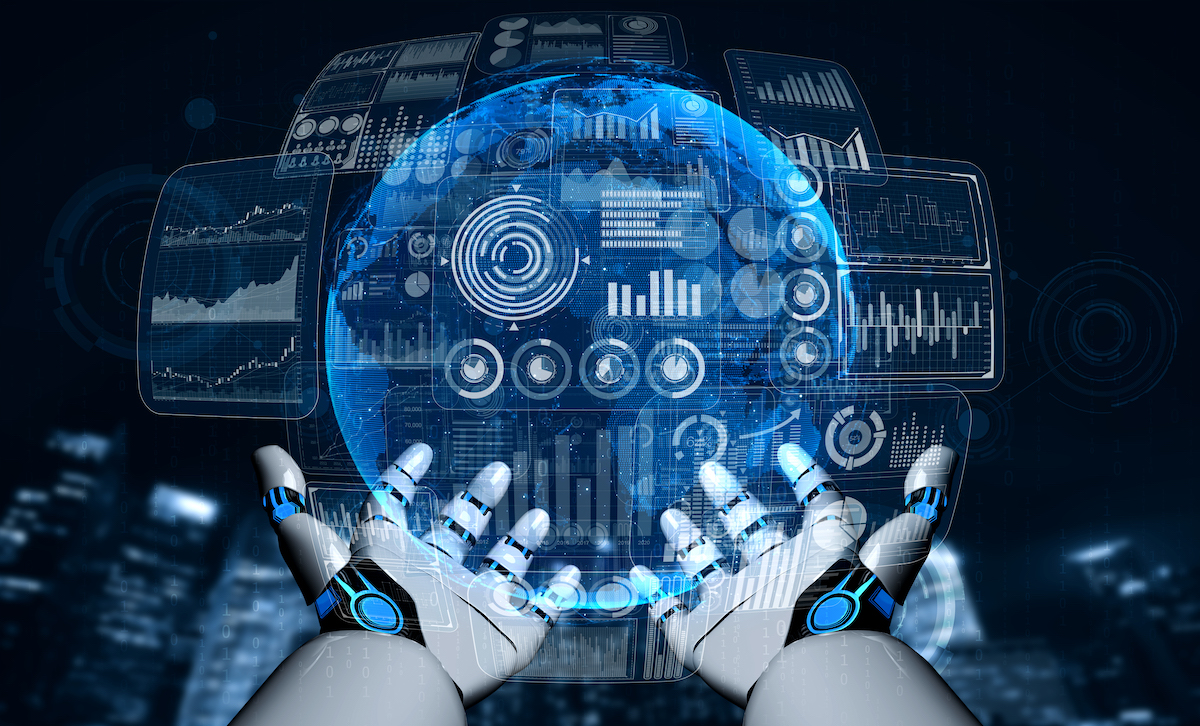In the dynamic landscape of healthcare, the convergence of Artificial Intelligence (AI) and Machine Learning (ML) has emerged as a powerful force, redefining patient care and clinical outcomes. Through AI app development services, healthcare providers can leverage the predictive and analytical capabilities of Machine Learning to deliver personalized and efficient care. This article explores the profound impact of AI apps on patient care, highlighting the key roles of Machine Learning in revolutionizing healthcare delivery.
The Confluence of AI and Healthcare: A New Era of Patient Care
A. Defining AI-Driven Patient Care
AI-driven patient care leverages advanced algorithms and data analysis to enhance diagnosis, treatment planning, and ongoing monitoring. These intelligent applications optimize clinical workflows, empower healthcare professionals, and ultimately lead to improved patient outcomes.
B. The Role of Machine Learning in Healthcare
Machine Learning, a subset of AI, equips healthcare systems with the ability to learn and adapt from data. Through iterative learning, ML models can make predictions, identify patterns, and assist in clinical decision-making.
Personalized Treatment Plans: The Power of Machine Learning Algorithms
A. Tailoring Care to Individual Patients
Machine Learning algorithms analyze vast patient datasets, considering factors such as medical history, genetics, and lifestyle. This enables healthcare providers to create customized treatment plans that are more likely to yield positive outcomes.
B. Predictive Analytics for Early Intervention
ML models can forecast patient trajectories, alerting healthcare professionals to potential complications or deterioration. Early intervention can be crucial in preventing the progression of diseases and reducing hospital readmissions.
Precision Medicine: Unlocking the Potential of Genomic Data
A. Genomic Sequencing and Analysis
Advances in genomics have led to the generation of massive amounts of genomic data. Machine Learning algorithms can sift through this information, identifying genetic markers associated with diseases, informing treatment options, and even predicting a patient’s risk for certain conditions.
B. Drug Discovery and Development
Machine Learning is accelerating the drug discovery process. By analyzing molecular structures and simulating interactions, ML models can predict the effectiveness of potential drugs, bringing new treatments to market more efficiently.
Transforming Medical Imaging with AI-Driven Applications
A. Enhanced Diagnostics with Computer Vision
AI-powered medical imaging applications equipped with computer vision technology can analyze radiological images with unprecedented accuracy. From detecting tumors to assessing fractures, these applications support radiologists in providing more reliable diagnoses.
B. Radiomics and Quantitative Imaging
Machine Learning in healthcare extends to the field of radiomics, which involves extracting quantitative data from medical images. These metrics can provide deeper insights into tissue characteristics, aiding in treatment planning and response assessment.
Remote Patient Monitoring: AI Apps Redefining Continuity of Care
A. Real-time Data for Proactive Care
AI-powered apps, integrated with IoT devices, enable real-time monitoring of patient vital signs and health metrics. Any concerning changes trigger immediate alerts, facilitating timely interventions and reducing the risk of complications.
B. Telemedicine and Virtual Consultations
AI-driven telemedicine applications enhance remote healthcare delivery. Through features like virtual consultations and symptom checkers, patients can receive timely advice and guidance from healthcare professionals, regardless of their physical location.
Challenges and Considerations in AI App Development for Healthcare
A. Ethical Use of Patient Data
The ethical use and protection of patient data are paramount in healthcare. AI app development services must implement robust security measures and adhere to privacy regulations like HIPAA to safeguard sensitive information.
B. Clinical Validation and Regulatory Compliance
Before deployment, AI-driven healthcare applications must undergo rigorous clinical validation to ensure accuracy and safety. Additionally, compliance with regulatory frameworks is crucial to ensure that these applications meet industry standards.
The Future of AI Apps and Machine Learning in Healthcare
A. Augmented Intelligence in Clinical Decision Support
The future of healthcare lies in augmented intelligence, where AI collaborates with healthcare professionals to optimize decision-making. AI-powered clinical decision support systems will become integral in providing evidence-based recommendations.
B. AI in Population Health Management
Machine Learning will play a vital role in managing population health. By analyzing aggregated patient data, healthcare providers can identify trends, allocate resources efficiently, and implement targeted interventions to improve the health of communities.
Conclusion
AI apps powered by Machine Learning are reshaping the landscape of patient care, offering unprecedented opportunities for personalization, efficiency, and improved outcomes. Through the expertise of AI app development services, healthcare providers can harness the full potential of these technologies to deliver high-quality care to patients worldwide. As we look to the future, the continued integration of AI and Machine Learning in healthcare promises to usher in a new era of patient-centered, data-driven healthcare delivery. Embracing these technologies is not just a strategic choice; it’s a commitment to advancing the standard of care and improving the well-being of patients around the globe.





